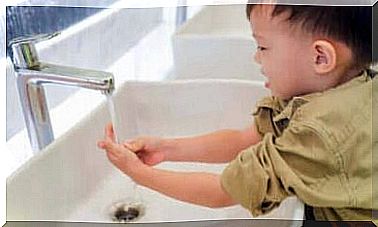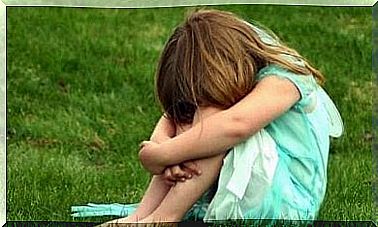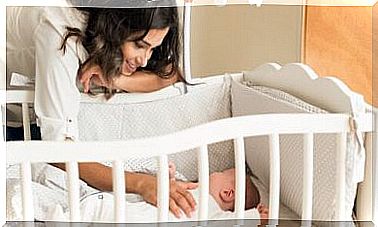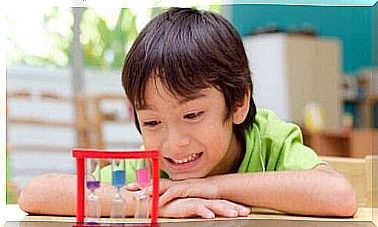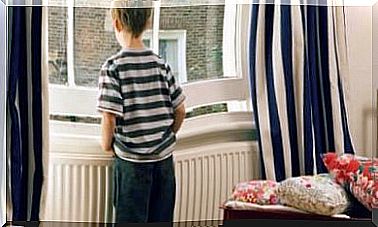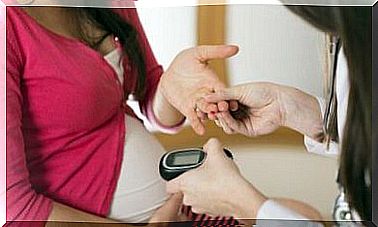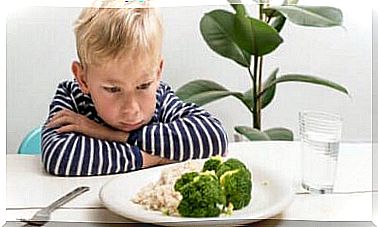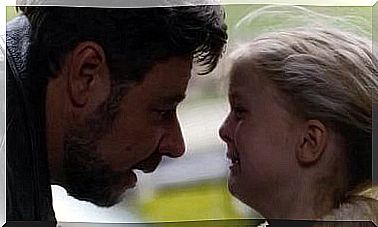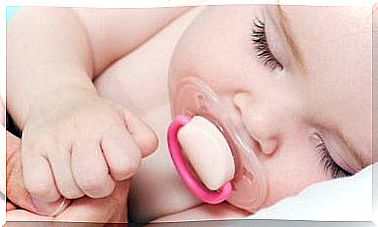Prevent Your Child From Catching A Cold During The Winter
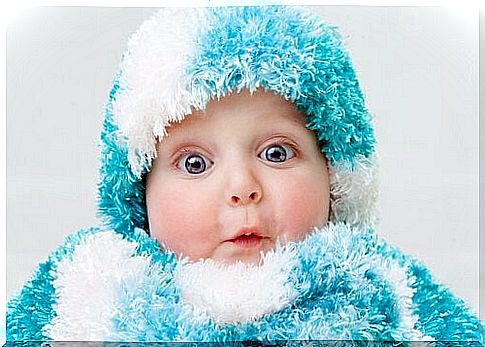
Here are some tips to help prevent your child from catching a cold when it’s rainy and cold outside.
Low temperatures and temperature changes tend to affect children’s health. Their immune systems are not yet fully developed and they therefore do not have the same defenses as adults or older children.
When the cold weather arrives, many parents wonder what they can do to prevent their children from contracting seasonal illnesses.
Below you will find practical tips to prevent your child from catching a cold.
Rain and your child’s cold
During the winter, the number of respiratory problems such as pneumonia, sinusitis and bronchiolitis increases, which can lead to greater complications for children.
The reason is that cold and rain cause respiratory viruses and pollutants to circulate in the air. As a consequence, your child may reach body temperatures above 39 C, and having a fever for more than three days is a reason to take your child to the doctor.
To prevent your child from catching a cold, take care of their diet, monitor their health and dress them, especially in environments with different temperatures.
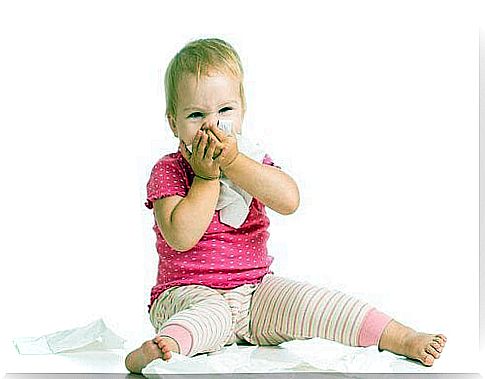
What to do when your child catches a cold
Viruses can be spread through the air or by contact with contaminated objects. It is therefore important to clean your child’s toys, and even their hands, often. It is even better if the adults do the same.
If there are already symptoms of a cold, the pediatrician will recommend giving them plenty of fluids to cool the throat as a first step.
If they are stuffy in the nose, use a saline solution in the baby’s nose for a quick and effective cure. You should also avoid giving them antibiotic cough medicine to cure the flu.
Tips to prevent your child from catching a cold
- Get them used to hygiene. To prevent your child from catching a cold, it is important that you take care of your own personal hygiene and your children while they are young. Teach them to clean their noses with handkerchiefs, preferably disposable. Hands should be washed with soap, and it is good if it is antiseptic, for 20 seconds under warm water to get rid of the virus.
- Avoid sharing objects. It is best not to share glasses or food served from the same place (potatoes, popcorn, etc.). Have individual food bowls, especially if someone in the family has a cold so that the bacteria do not spread.
- When coughing or sneezing, cover your mouth with your elbow and teach your child to do the same. If you sleep close to each other, keep a certain distance between your heads so that the cold does not spread.
- A good diet. Take care of your child’s diet because the cold weather requires more calories than during the summer. A good diet strengthens their defenses and helps protect them from the cold and other diseases. Breastfeeding can also improve their immune system and protect them from many infections. If they are already eating solid foods, their diet should include fruits and vegetables that are rich in vitamins A and C, as well as fish and milk. Replace cold drinks with broth, hot drinks, water and natural juices at room temperature.
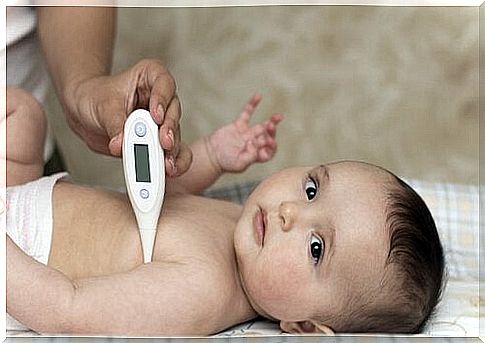
- Avoid infectious diseases. If someone in the family has a cold, he or she must not come into contact with the child. If it is inevitable that they spend time together, use masks and also avoid sneezing or coughing in front of the child.
- Keep them away from the cold. To prevent the child from catching a cold when you go for a walk, put it on properly with clothes, but do not overdo it. If the baby gets too hot, it can be counterproductive because the extra fabric prevents regulation of body temperature with the environment.
The heat at home should not be set too high, to avoid contrast with the external temperatures. It is important to protect children’s nose and mouth when walking from hot to cold environments.
- Ventilating the home prevents the child from catching a cold. Do this often so that the virus disappears. However, you must protect your child from drafts by having them in a room without any open windows or doors.
- Avoid crowds. It is important that you do not take your child to places where there are a lot of people. Avoid shops, city centers, etc. as they are usually a breeding ground for many bacteria.
- Sleep and exercise are important so that the child does not get a cold. Exercise is recommended as it stimulates the baby’s immune system. By touching his little body, it becomes much stronger. Sleep is also very important to strengthen your child’s defenses. The better the child sleeps, the better he or she will react to the cold and flu virus.

